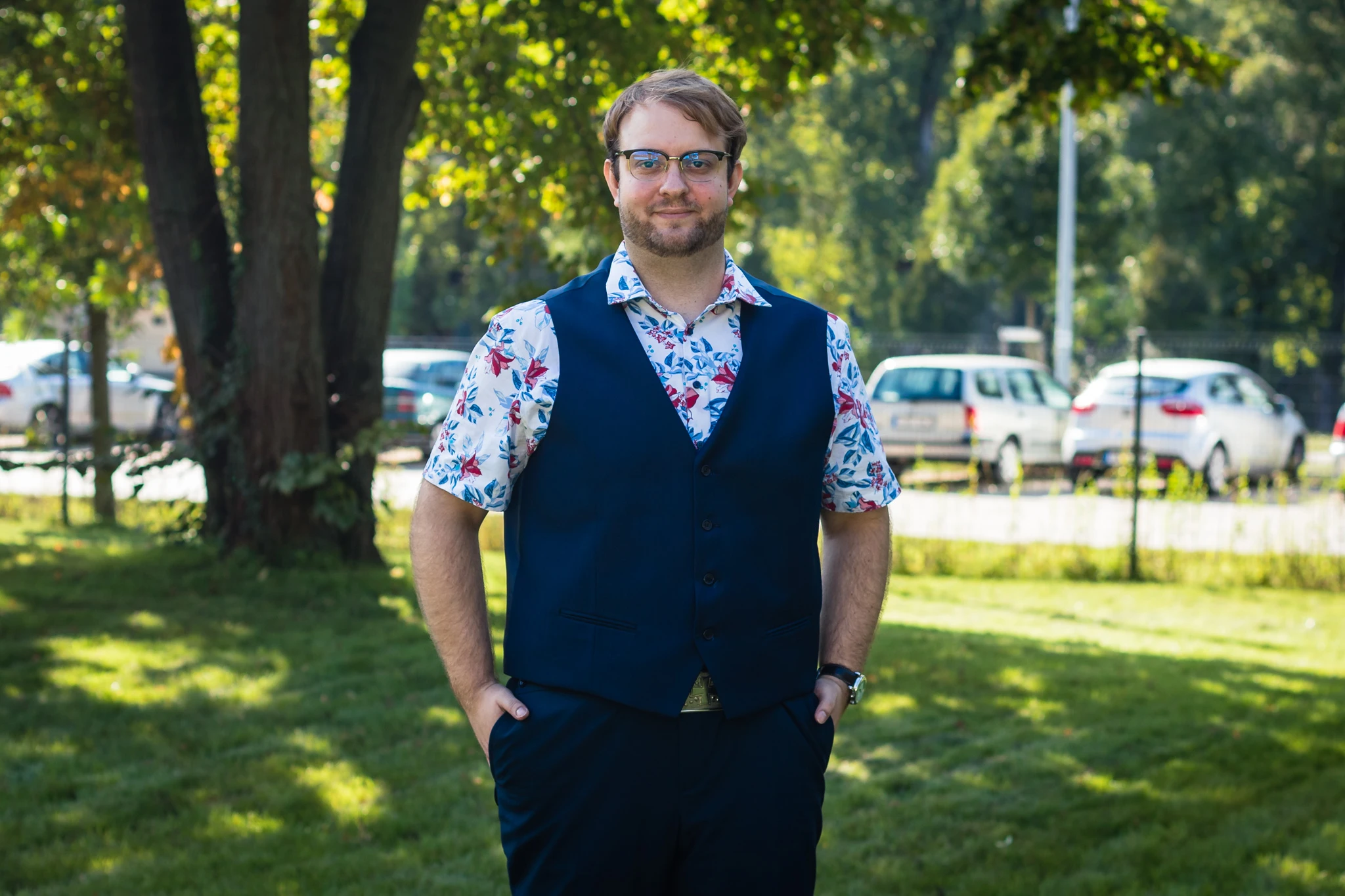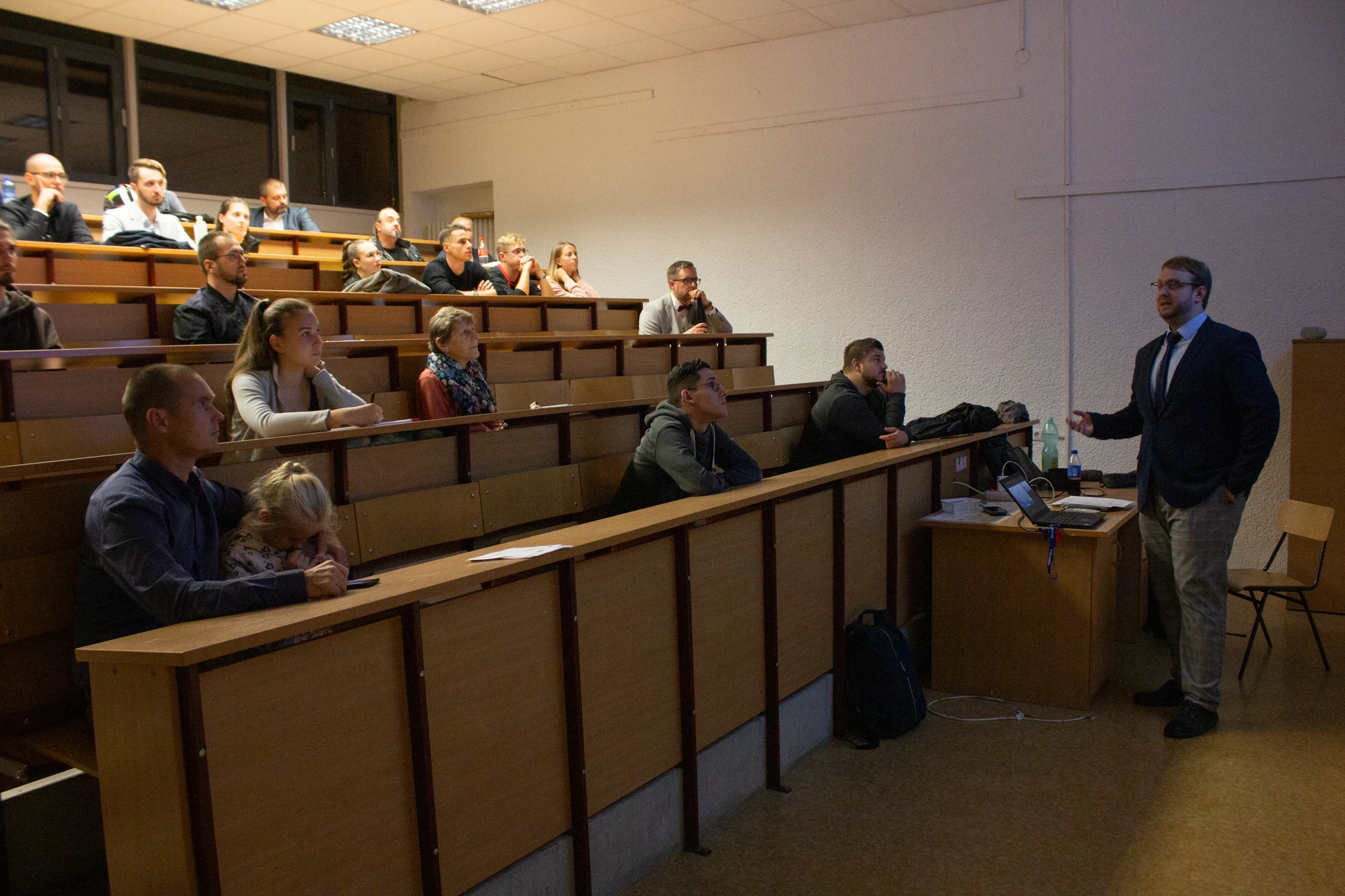First place: a Széchenyi University PhD student explored the innovation potential of the V4
Is it possible to create a similar region of success on the old continent outside the 'blue banana' centre region spanning from Birmingham to Milan? How can the competitiveness of the Central European "boomerang" from Gdansk to Budapest be improved by a well-developed innovation ecosystem? How can a coherent and supportive legal environment stimulate the start-up world? Tamás Stipkovits, a PhD student at the Doctoral School of Law and Political Sciences of Széchenyi István University, was looking for answers to these questions in his thesis written for the competition of the Ministry of Foreign Affairs and Trade.
This spring, the Ministry of Foreign Affairs and Trade launched a call for papers on the further development of the Visegrad Cooperation (V4), which were to be written in a scientifically rigorous manner, in four thematic areas: globalisation, security policy, sustainability and competitiveness. Dr. Tamás Stipkovits, a doctoral student at Széchenyi István University, competed in the latter category and was awarded first prize.
"Throughout my career, I have always been interested in the interface between law and economics. My PhD thesis deals with the legal perception of start-ups, i.e. how the law - primarily company law - deals with this unusual form of entrepreneurship, and how appropriate regulation could help these companies to be as successful as possible, and thus develop the whole innovation ecosystem" - said the student of the Doctoral School of Law and Political Sciences, pointing out an exciting aspect of the topic that has been little mentioned so far.

According to Dr. Tamás Stipkovits, we need to constantly rethink our concepts, because what was an innovation ten years ago may not be one today (Photo: Csaba József Májer)
As Dr. Tamás Stipkovits noted, there were two reasons why he entered the V4 competition of the Ministry of Foreign Affairs and Trade. On the one hand, he found it an inspiring task to examine the competitiveness of the regional cooperation between the "blue banana" European centre region and the Central European boomerang, which stretches from Gdansk to Budapest and is essentially covered by the "Visegrad Community", and to make proposals for promoting this by developing the innovation ecosystem in the countries of the V4. On the other hand, his research focuses on start-ups anyway, and he thought why not link the two together.
"I have explored the theoretical possibility of whether it makes sense to talk about a common innovation ecosystem in the case of the "Visegrad Community". There is a common economic, cultural and social asset, a traditional alliance between countries that goes back centuries, which is a dynamically developing area of the European Union and which has a huge potential", the doctoral student explained, and then went on to elaborate on his results.
"I used a SWOT analysis to analyse the strengths, weaknesses, opportunities and threats in the V4 innovation ecosystem. Academic resources are available in the region, but the venture capital market is essentially absent. The legal environment for start-ups is not very favourable and needs to be improved. However, the local region can also be seen as a fast track. Together with the Poles, we are talking about a fairly large market, so solutions such as those offered by our spinoff companies could be tested. If we can share our knowledge and be successful here, we could be in a bigger league," he said, adding that his proposals include common legal definitions, joint programmes and the establishment of joint venture capital funds as well.

Dr. Tamás Stipkovits gave a presentation at this year's Researchers' Night event at Széchenyi István University (Photo: Márton Horváth)
While writing the thesis, the question of the function of a university in the 21st century also arose. The quadruple helix model identifies four actors - government, higher education, business and civil society working together to create a successful innovation ecosystem and a prosperous economy. Here, the role of the university is no longer limited to education and research, but involves some form of socio-economic engagement, for example in the form of services offered to industry (laboratory testing, consultancy, targeted research). Dr Tamás Stipkovits recalled Etzkowitz's theory of academic revolutions. The first one was when universities started to do research alongside education, and the second one is happening now, when the entrepreneurial university is opening up to business.
"In Győr, they are very receptive to the new winds of the new times. I think it is positive that Széchenyi István University is responding so intensively to this innovative approach. The institution has played a crucial role in creating an innovation ecosystem in the region. The fact that we are ideally sized and close to each other, so we can easily cooperate, is a huge advantage. I myself got involved in the start-up scene by attending events and becoming an active visitor to the Spinoff Club, where I met experts in other fields," recalls Dr Tamás Stipkovits, who was also asked about his experience as a lawyer researching economics.
"I really had to get out of my comfort zone, which was a challenge. I remedied this by doing a lot of research myself, as well as contacting different trainers and experts to make sure I was interpreting what I was reading correctly. Because it is not enough just to read the book. According to Mihály Polányi, there are two types of knowledge: explicit and tacit. Explicit is what is written in the book, which can be learned. Tacit knowledge is unwritten and has to be learned from the master. Fortunately, I was able to turn to willing colleagues who bridged these gaps," said the author of the winning entry, who thanked his colleagues.
He first mentioned his doctoral supervisor, Dr. Attila Vermes, and Dr. Judit Glavanits, whose work on venture capital investments was an important reference for him. He also expressed his gratitude to his former principal, Dr Gyula Szalay, who, in addition to his work as a lawyer, also followed his academic endeavours with interest. Dr. Gábor Hulkó connected the author with Czech and Polish researchers, and Dr. Miklós Berta, whose Czech-Hungarian scientific contacts were also a great support. From the Management Campus side, it is important to highlight Dr. Tibor Dőry, Dr. Szabolcs Rámháp and Gábor Dósa, who contributed greatly to the preparation of this thesis. Dr. Árpád Tóth and Dr. Melinda Hajdu-Smahó also played a supporting role in the success of the thesis. The members of Sentry Node (Alex Suta, Rudolf Krecht and Norbert Makó) provided the empirical approach and Krisztián Szabó from the startup ecosystem of Győr responded to the author's request.
"I owe a huge thank you to everyone who has guided me in any way in my work. As the long list of names shows, Széchenyi István University has a vibrant and supportive scientific and professional community that is able to exploit synergies between disciplines. I myself was able to build on this in my research, and I feel very fortunate for this,"concluded the award-winning PhD student.











